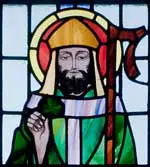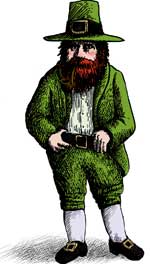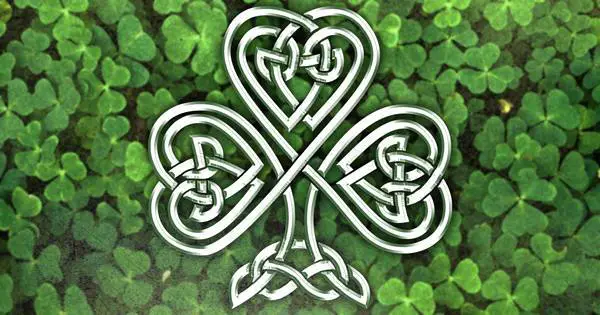The shamrock, a small clover which is now the national flower of Ireland, was an important symbol to the ancient Irish Druids as a plant naturally displaying the triad with its three heart-shaped leaves.
The Celts believed that everything important in the world came in threes; the three dominions of earth, sky and sea, the three ages of man, and phases of the moon; so a plant with three leaves would have been held in high regard.
St. Patrick used the shamrock in his teaching

The shamrock was thought to have mystical properties and the ability to predict the weather; its leaves turn skyward when a storm is brewing.
It is believed that St Patrick, on seeing the importance of this small plant to the Druids, used the shamrock to illustrate the Christian teachings of the Holy Trinity, thus spreading the word of Christianity throughout the land in a way that appealed to its people.
Many of the Druid high priests are thought to have converted to Christianity, becoming Bishops following St Patrick’s teachings.
Ireland’s best known national symbol

The shamrock became a symbol of rebellion against the Crown in the 19th century and anyone caught wearing one, risked the hangman’s noose! Today it is Ireland’s most well know national symbol recognised throughout the world.
It is used as a logo by many Irish companies and organisations such as Aer Lingus, and on the 17th of March the shamrock is displayed on anything from beer to bunting to over-large novelty hats as part of the St Patrick’s Day celebrations.
In Celtic lore the shamrock has always been a charm against evil which relates to the modern belief in the four leaf clover as a good luck charm.
Some believe the shamrock even has the power to break a leprechaun’s curse.
